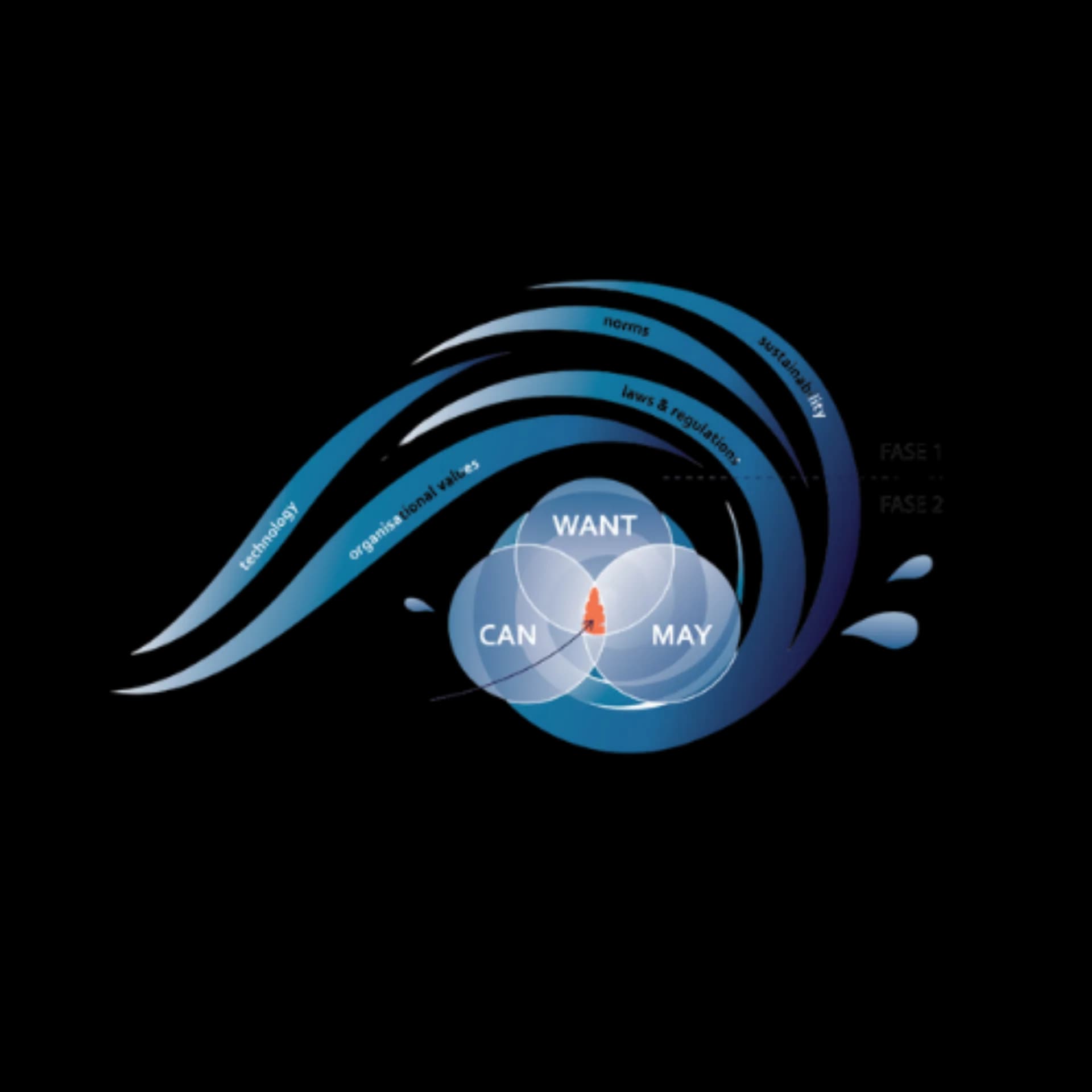Digital Ethics
‘Responsible use of data and AI requires more than a good conversation’.
Ethics is about more than a good conversation. It is not just talking about what is right to do, but also doing the right thing well enough and being able to be accountable for it. To a board or a supervisor, but also to society, an individual customer or citizen. The ethical discussion is the beginning of the responsible use of technology. However, equally important is the follow-up. Because what will you do to align not only with your counterpart, but with an entire organisation? This also requires setting up processes within the organisation, training employees and sometimes even defining the organisation's values. Highberg can help with this. Ad hoc, in a specific case. But also more broadly, if the goal is to give responsible use of data and AI a position across the organisation.

In an increasingly complex world, new technology has to meet more and more requirements. Technology must not only be reliable and comply with legislation, but also be sustainable and ethical. You also want to prevent technology from disadvantaging or excluding certain groups. If you save these questions until the end of your project, you will come out cold. After all, anything that has to be changed then means rework, extra lead time and extra costs. Only by also keeping an eye on the applicable frameworks, ethical and legal, from the very beginning, will you ‘smoothly go through all the hoops’ during each assessment, instead of running into a wall. At Highberg, we therefore consider in advance which hoops will come your way in a specific project. Then we make sure we ask the right questions at the right time, so that you don't have to go back to the drawing board at the end. We call this ‘smart from the start’.
To help organisations adopt this way of working, we have developed the following roadmap:
Easier said than done?
That's right. Every organisation is different. And so is the way responsible data use will work best. But not everything has to happen at once. In fact, starting small and building up gradually is a very sensible approach. Would you like to know what responsible data use could mean for your organisation, or what the first step could be? Then contact one of our advisers without obligation.
Ethics in context
AI Ethics
- For us, Ethics of Artificial Intelligence is a part of digital ethics. The question of AI ethics is about the relationship of humans to the use and deployment of AI. We help you keep the human touch in mind for both the customer and employee, while taking advantage of the opportunities AI offers.
- Without data, there is no AI. AI ethics is therefore closely linked to data ethics and our overarching vision of how to deal with the implementation of digital technology (responsible-by-design). Our approach to ethical issues around AI are also reflected in the principles on AI governance and its design.
Data Ethics
- Data ethics is about how to responsibly deploy, maintain, describe and analyse data. These questions are essential for more and more technology. We therefore often see that digital ethics is also data ethics. There is now much attention on the ethical issues surrounding the use of data. We help and advise in implementing a data-ethical organisation. Read our data ethics white paper where we elaborate on this.
Responsible-by-design
We see ethics as one of the components to enable responsible digitisation; we call it ‘responsible-by-design’. In a highly digitising world, the deployment of digital technologies interfaces with various disciplines such as privacy and security and themes such as sustainability. Determining whether the deployment of a digital technology leads to negative consequences therefore also requires an interdisciplinary perspective. We are therefore convinced that involving experts like security and privacy upfront, but also looking at sustainability goals and other digital legislation, produces a better final product that also takes into account the unforeseen negative consequences. Our ethics consultants are therefore happy to collaborate with the other expertises involved in your organisation and within Highberg.

Related Insights




